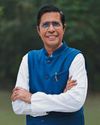
Renu Negi, a young woman entrepreneur in Delhi, who also works with various early-stage start-ups
in scaling up their businesses, has often found her own data analytics start-up pitch being rejected by investors for reasons she believes are mostly vague.
She says that rather than providing substantive reasons for why her pitch did not meet funding criteria, investors frequently cite excuses like, “But you are too young a woman to handle a data start-up", “What will happen after you get married and have children?”, “You need to bring in a male co-founder".
Deepika Loganathan, co-founder and chief executive officer (CEO) of HaiVE AI, narrates her arduous journey. An early marriage (at 21 years) was the first hurdle. It was not until she relocated to Australia that she could co-found her start-up. She says that obtaining funding in India is difficult for women, making entrepreneurship a goal too far.
Sadly, Negi and Loganathan are not alone in encountering gender bias. Despite India's position as the third-largest start-up ecosystem globally, women entrepreneurs continue to face challenges in getting funding. In a country where gender discrimination persists, overcoming societal barriers to pursue entrepreneurship is daunting. Experiencing gender bias when it comes to funding is yet another hurdle in the lonely struggle to make a mark in the professional world.
While a cursory glance at data might suggest that the record low figures are due to the funding winter, a detailed analysis suggests that the number of women-founded start-ups has been declining for a decade; the current ratio of men-led tech start-ups and women-led tech start-ups stands at 245:1, which used to be 51:1 back in 2014.
This story is from the March 2024 edition of Outlook Business.
Start your 7-day Magzter GOLD free trial to access thousands of curated premium stories, and 9,000+ magazines and newspapers.
Already a subscriber ? Sign In
This story is from the March 2024 edition of Outlook Business.
Start your 7-day Magzter GOLD free trial to access thousands of curated premium stories, and 9,000+ magazines and newspapers.
Already a subscriber? Sign In

From Chandni Chowk to Global Recognition
For Manish Aggarwal, director at Bikano, Bikanervala Foods, the family business was not just a responsibility but a passion he took to the global stage

Spotting AI Scams
Al has become an integral part of our lives, from customer service no insurance claims. But it is also becoming a tool for fraudsters who use it to scam individuals and corporations

Let a Hundred Flowers Bloom
On the banks of the Ganges in industrial Kanpur, a start-up has blossomed that turns waste flowers into incense

BATTERY LOW
India produces enough green energy to power many of its largest cities yet lacks the storage to use it efficiently. A nation blazing forward must leap ahead in battery technology to stay on course

We Have Everything Going for Rajasthan
Rajyavardhan Singh Rathore, Rajasthan’s industry and commerce minister, tells Pushpita Dey why the state is suited to become a hub for investments.

Dairy and Other Dilemmas
India’s refusal to open its dairy market has complicated trade negotiations for years. As global partners demand concessions, is the cost of protectionism outweighing benefits?

Riding in a Maze
As gig workers ride into an uncertain future with little more than a smartphone and a bike, the government is struggling to arrange a socialsafety net. But millions without social security is recipe for disaster

BIRLA'S BIGGEST BATTLE
As Kumar Mangalam Birla completes 30 years at the helm of the Aditya Birla Group, he has a battle to defend his businesses and conquer new ones

THE INNOVATION LEAP
India dreams of becoming a product nation. But unless the corporate sector significantly increases spending on R&D, the country will continue to lag behind global peers

EDUCATION BUDGET MUST DOUBLE EVERY 3 YEARS
Veezhinathan Kamakoti, a renowned academic and director of Indian Institute of Technology Madras, tells Deepsekhar Choudhury on what technology sovereignty means for India and how it can propel the country towards its vision of becoming a developed nation by 2047.